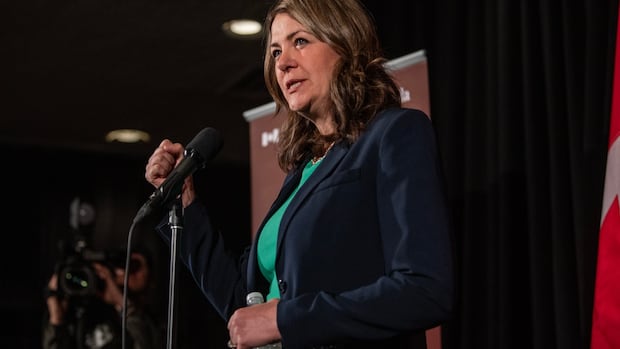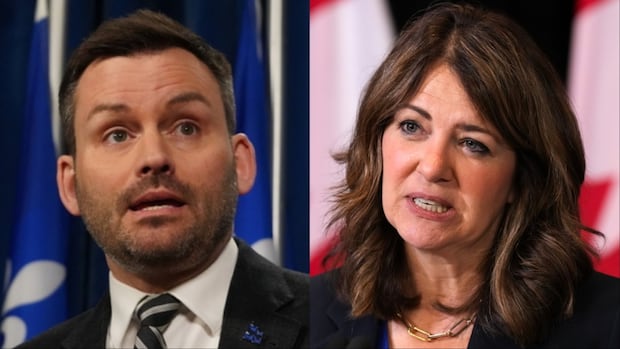Danielle Smith's Use of the Notwithstanding Clause: A Shift for Alberta's Libertarian Premier
Alberta Premier Danielle Smith, known for her libertarian views, is considering invoking the notwithstanding clause of the Charter of Rights and Freedoms to protect her government's three laws concerning transgender issues. This potential move marks a significant shift for a politician who has historically championed individual rights and freedoms, raising questions about the balance between those rights and the government's legislative agenda.
Smith's Stance on Rights and Freedoms
Throughout her political career, Danielle Smith has consistently advocated for the protection of fundamental rights. She expanded Alberta's Bill of Rights last year, adding language regarding property rights, gun ownership, and refusing medical treatments. Smith has often invoked classical liberal values, referencing 17th-century philosopher John Locke and emphasizing that rights exist independently of specific laws, granted simply by being human.
Despite these past statements, a leaked memo revealed that Smith's office instructed officials to prepare legislation invoking the notwithstanding clause in relation to the three transgender bills introduced in the fall 2024 legislative session. These laws address participation in sports, parental consent for name and pronoun changes in schools, and access to gender-affirming care for young Albertans.
The Transgender Laws and Legal Challenges
The three laws in question ban transgender women and girls from participating in amateur female sports, mandate parental consent for students changing names or pronouns in school, and restrict access to gender-affirming treatment and surgery for young Albertans. 2SLGTQ+ advocacy groups like Egale and Skipping Stone have launched legal challenges, arguing that these laws violate Charter sections protecting "life, liberty and security of the person" and equality before the law. A temporary injunction has already blocked the implementation of transgender health care restrictions.
While Smith has expressed a preference for defending the constitutionality of these laws in court, she remains open to using the notwithstanding clause to prevent the courts from overturning her legislation based on Charter considerations.
UCP Base and the Notwithstanding Clause
Smith's commitment to protecting basic rights and freedoms has generally resonated with the activist base of her United Conservative Party (UCP). This base shared her opposition to government mandates during the pandemic, which were often upheld by courts under the Charter's "reasonable limits" clause. Some members of the UCP, known as the "Black Hats," have proposed eliminating both the notwithstanding clause and the "reasonable limits" clause from the Alberta Bill of Rights.
While some UCP supporters may be wary of overriding rights, others are supportive of defending their positions on transgender issues. This represents the balancing act required of any political leader when considering the use of the notwithstanding clause.
Defending the Notwithstanding Clause
Smith has become a strong advocate for the government's right to use the notwithstanding clause, calling it "integral" to the Charter and an "unassailable provincial constitutional right." She defended Alberta's position on Quebec's use of the clause in its secularism law, arguing against federal intervention.
Alberta's legal argument, co-written by deputy justice minister Malcolm Lavoie, asserts that the notwithstanding clause is crucial for federalism, preventing federally-appointed judges from imposing a centralized and homogenized view on provincial legislatures. Legal experts like Stéphane Séraphin and Geoffrey Sigalet anticipated Alberta's potential use of the clause in relation to its transgender bills, emphasizing that it signals the importance of the measures and ensures respect for the province's understanding of the Charter.
Parliamentary Supremacy and Judicial Review
In an interview with CBC's Front Burner podcast, Smith emphasized her belief in parliamentary supremacy. "When you have a difference of opinion, then you litigate it out, but in the end, I believe in parliamentary supremacy and that means that politicians do get to have the final say," she stated.
Smith's stance echoes the arguments of western premiers who helped create the Charter in 1982, including former Alberta Premier Peter Lougheed. Lougheed believed the notwithstanding clause ensured the "supremacy of elected people over appointed people," but also cautioned against its overuse. He argued that the clause should only be invoked after exhausting all judicial hearings and appeals.
The potential invocation of the notwithstanding clause by Danielle Smith raises questions about the future of rights in Alberta, highlighting the tension between safeguarding individual freedoms and asserting governmental authority.
 Visit the website
Visit the website




